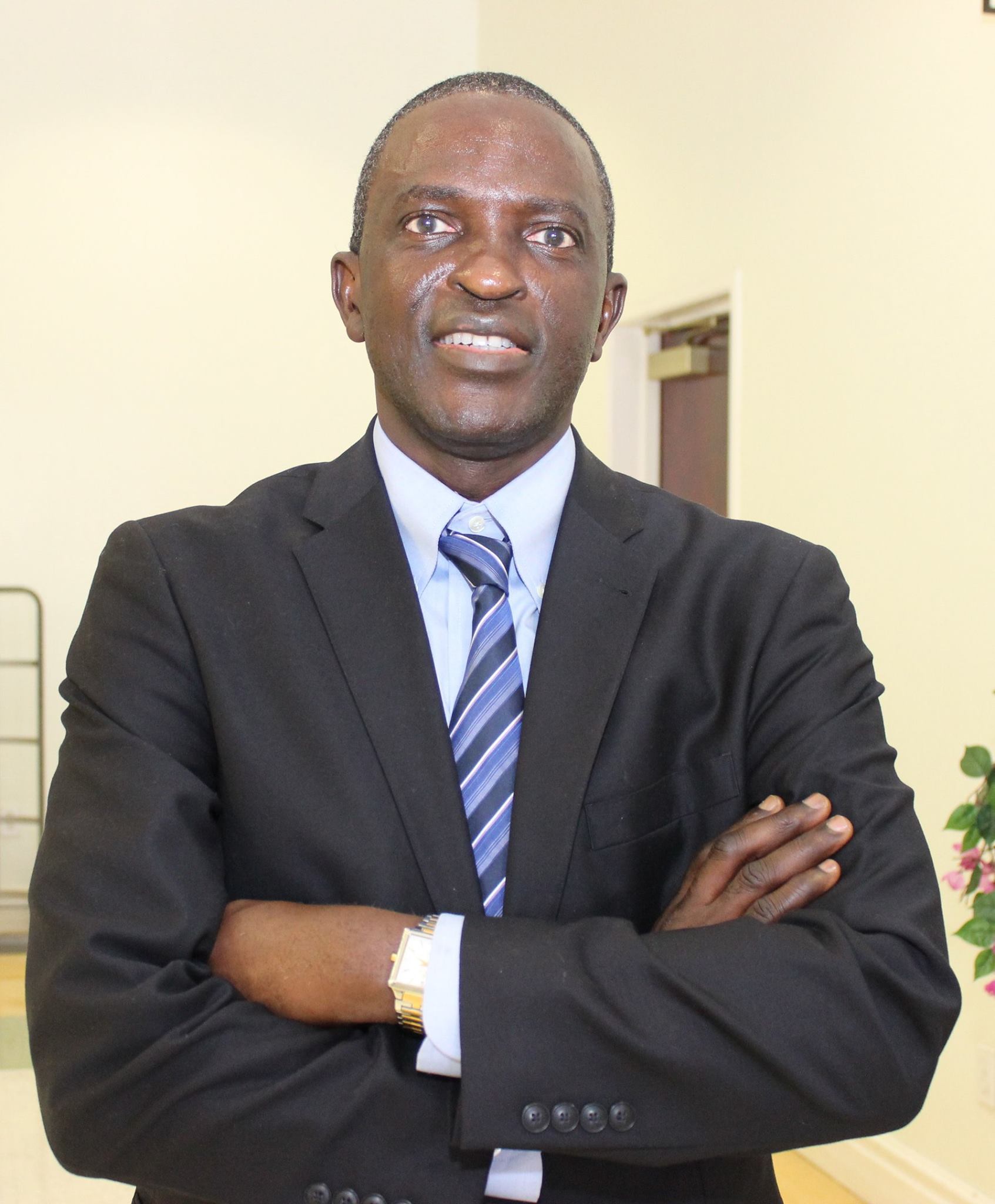
Words have power, for our own benefit, let us be mindful of what we say about our health and what we say about the health of others, for we may be creating the blueprint for our own health.
In 2001, during an interview, I heard a patient say, “I did a heart scan.”
“Why did you do it?” I asked.
“Because,” said the 65-year-old woman, “in my family, every-body, I mean everybody develops heart disease before the age of seventy, so I know I will have a heart disease.”
“What did the scan show?”
“Coronary artery disease; I need a stent.”
She gave the same narrative to two nurses at different times in my presence, and repeated it to me after I finished her proce-dure. Along with coronary artery disease, this patient has morbid obesity (BMI 54), hypertension, type 2 diabetes mellitus, and high cholesterol-and she is a physician.
Another physician I know once said:
“I don’t care about cholesterol; one will die of something any way.”
A third physician opined, “You can’t correct abnormal cholesterol level with diet alone; you have to take medications.”
Those are just a few examples of doctors speaking against their own health. What about non-doctors? I hear many non-doctors speak sickness into their lives, too. Here are some of what they are in the habit of saying:
- “In my family men die before the age of fifty.”
- “Diabetes runs in my family. My grandmother has it, my mother has it, and I have it.”
Indeed, diseases run in the family, but just because a dis-ease condition occurs across generations in the same family does not mean it is genetic. It does not mean we have no power over it. It does not mean we should create a narrative about it and hand it down the generations, as our ancestors handed down history in oral tradition. It does not mean we should allow it to rule over us.
Let us examine the claim of the patient I mentioned earlier. “Everybody, I mean everybody in my family develops heart disease before the age of seventy, so I know I will have a heart disease.” Like a baton in a race, the narrative of heart disease was handed to her early in life. It became her mantra. She tells it to herself, tells it to her family, tells it to her friends, tells it to her doctors, tells it to her nurses. She won’t stop. She keeps telling it. It became a force in her life. A force that overpowers the power in her years of college education, years of medical school education, and years of residency education. Three decades of medical practice could not help. She won’t stop. She keeps telling it. It rules over her.
According to studies, if this patient with coronary artery disease, morbid obesity (BMI 54), hypertension, type 2 diabetes mellitus, and high cholesterol changes her life style, by signifi-cantly reducing her consumption of processed food, increasing her consumption of variety ofvegetables, and fruits-and by per-forming consistent exercise, she could reduce her risk of coro-nary artery disease. If she changes her lifestyle, she could regain power over the force that her years of medical education, and years of medical practice could not overcome. If she changes her lifestyle, she could create a new mantra for generations to come in her family. She could create a narrative that heals, not harms. She could hand over a new baton.
More words from people speaking against their health:
- “I can give up everything except rice and bread.”
- “Me, I have to eat pounded yam oh.”
- “I have a sweet tooth.”
- “I’m addicted to bread, to sugar, to rice.”
- “If we can’t eat bread, can’t eat rice, can’t eat cake, what can we eat?”
- “My grandfather drank coke and lived till he was ninety nine! Why should I give up soda?”
- “Eating vegetables everyday! That’s boring.”
- “I don’t eat breakfast.”
- “You are too skinny; your wife doesn’t feed you.”
- “She doesn’t eat.”
- “She eats too much.”
- “You are too fat.”
- “You need to lose weight.”
- “I’m just a little overweight.”
- “It is easier for men to lose weight.”
- “I wish I could get rid of this love handle.”
- “Eating raw vegetables is not in our culture.”
- “Working out is not in our culture.”
What we say about health is a response to what we hear, what we see, what we read, and what we feel. But what we say has impact on what we think, and what we think has impact on what we do. We should be mindful of how we respond to what we hear, what we see, what we read, and what we feel.
Victor Frankl, an Austrian neurologist and psychiatrist, and a Holocaust survivor in his book, Man’s Search For Meaning, said,
“Between stimulus and response there is a space. In that space is our power to choose our response. In our response lies our growth and our freedom.”
We have the power to choose how we respond to the ideas we have internalized about sickness: what we are told by family, by friends, by doctors; what we see, what we read, and what we feel.
We have the power to choose between what God says about us and what man says about us. God created the heavens and the earth. He does everything with a purpose. He has a purpose for every man and for every woman. His plan is for us to complete our tasks before we return to him, not a day sooner. Therefore, the following sayings are from man, not from God:
“In my family, men die before the age of fifty.”
“In my family, women die before the age of fifty.”
“Diabetes runs in my family. My grandmother has it, my mother has it, and I have it.”
“Cholesterol runs in my family.”
“Cancer runs in my family.”
“Heart disease runs in my family.”
“Prostate cancer runs in my family.”
“Breast cancer runs in my family”
“Colon cancer runs in my family”
They are words of man, not of God; we should not choose them, we should not say them, we should not make a mantra out of them. We should heed the guidance of the Scripture: “The tongue has the power of life and death, and those who love it will eat its fruit.”
Regardless of the medical history of our family, we have the power to choose between words that heal and words that harm. We should choose words that heal and match them with actions that heal. Let us be mindful of our power to choose.
Between choosing to visit or not to visit physicians for health maintenance, let us choose to visit physicians to maintain our bodies in good condition.
Between choosing to work out or not to work out, let us choose to work out. Let us seek professional help on what to do and how to do it, so that we do not hurt ourselves.
Between choosing healthy food or junk food, let us choose healthy food. The consequences of choosing junk foods are obesity, hypertension, diabetes, high cholesterol, and chronic cardiovascular diseases.
Between choosing water or sugary drinks, let us choose water.
There are things we have no power over. We have no pow-er over what sickness stories we are told by our families, and by others. We do have the power not to make those stories our mantra.
We have no power over the medical information disseminated through the modern media, but we do have the power to conduct our own research, or to consult our own physician.
We have no power over how much other people weigh – whether too thin or too fat- but we do have power over how much we weigh. And we have the awareness that weight should not be judged alone; it should be judged in relation to the height. A very useful index to use is the Body Mass Index (BMI). The BMI calculator and acceptable ranges are on the internet. Finally, BMI is meaningless if not taken in the context of our overall health and muscle mass. It is possible for people with healthy BMI to have numerous chronic diseases, just as it is possible for people with overweight BMI to be healthy, particularly if most of their weight comes from muscle mass.
I myself changed the way I spoke to myself about my health. When I was deep into sugar, when I was obsessed with sugar, when I thrived on sugar, my wife was so concerned that she warned me many times that I was “writing a letter to di-abetes”.
“My pancreas is in good shape; I can’t have diabetes,” was my usual response.
With those words, I continued my habitual consumption of sugar and processed food. I continued to march down the road to illness. One day in 1999, when I was in the locker room of my hospital, a fellow doctor said to me:
“Doctor Saliu, do ten pushups every morning.”
“Why,” I asked.
“You have pot belly,” said Dr. Mir.
And in February 2000, when I went to see my physician for health maintenance, during the physical examination he said, “You have folds on your sides. And you are overweight.” A few days later the doctor called me and gave a lecture.
“Doctor,” the physician said, “your cholesterol is very high. You need to work out and lose weight. You need to eat fruits and vegetables. You need to cut down your fat intake.”
With those words, speaking towards change rather than de-nying my ability to change my own health, I stepped off the road to illness and began walking the path to healthy living.

No matter what medical problems our families faced in the past, and what medical problems we face now, our focus should be where our strengths are, not where they are not. Our strengths are in the power to choose between what God says about us and what man says about us. Let us choose words that heal, and take actions that heal. Above all, when we are in doubt, let us follow the ground rule of the Scripture: “…Let the weakling say, ‘I am strong’.”








Nice one. Very timely.